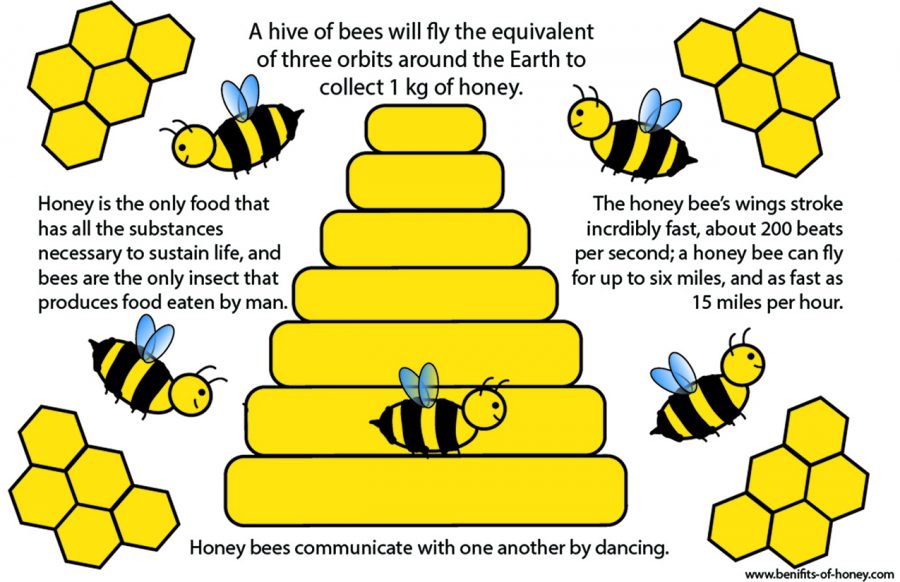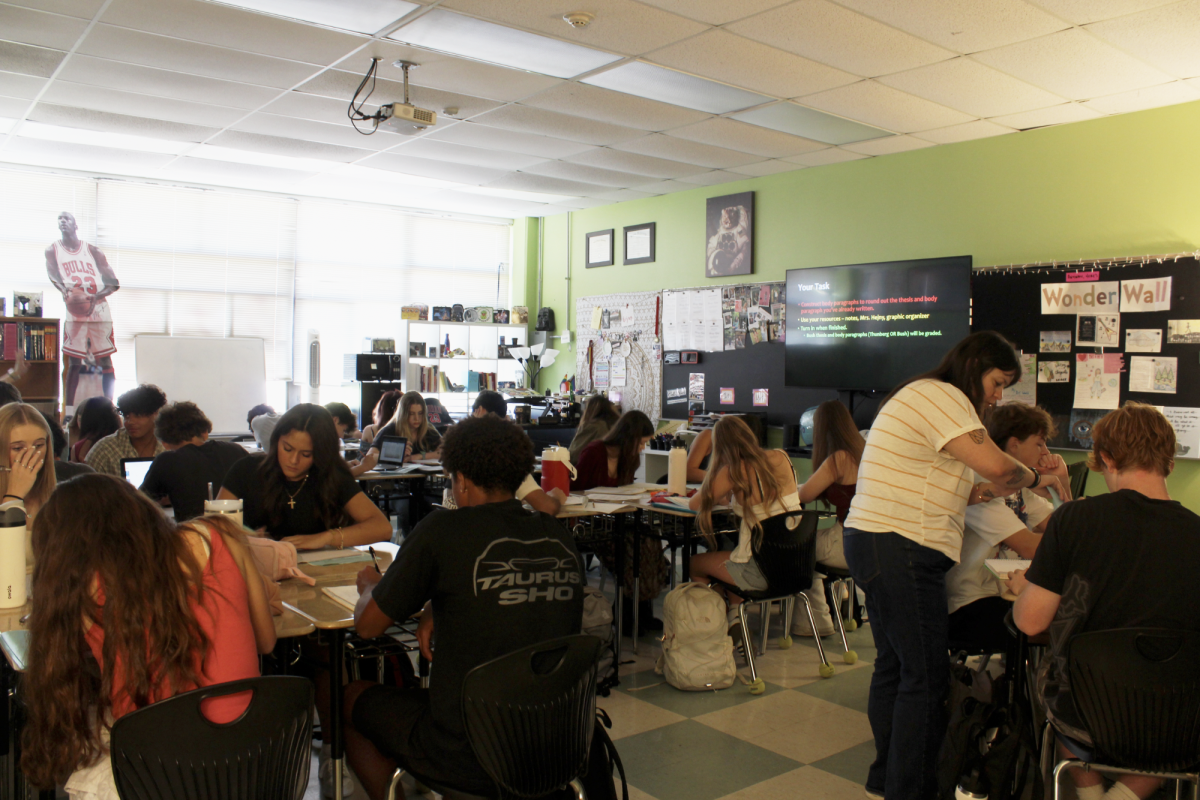The Earth club promotes bee awareness across campus
January 16, 2017
Imagine saving a species or making a change for the better. That’s what the earth club is doing; the 14 members of the club are working together to raise awareness for bees due to a decline in population.
The club works each Tuesday and some lunches, tending to the beehive, watering plants, and making sure everything is in order.
“I am quite proud of these students for helping make Bowie more eco-friendly,” earth club sponsor Nicholas Stamper said. “Not only are they helping out Bowie but reaching to try and make a change in the bee population.”
Members of the club garden and help out to make our environment cleaner.
“I joined earth club because I enjoy gardening, I like that we get to raise awareness about bees and gardening,” earth club sophomore Elliot Nelson said.
The club wants people to realize bees aren’t out to go after people.
“I think some people are against the bees because they don’t understand and realize what they do for us;” earth club leader sophomore Siena Rae said. “People think that all they do is create honey and sting you for no reason, which is not true.”
Members have created posters, put recycling bins, and plans to speak to the school about how to help nature out and help out the bees.
“We tried by making posters but by the next day some were torn, taken down, and even had gum on them,” assistant earth club leader sophomore Marina Flores said.
Many people do not like bees due to their sting.
“I think some people are against raising awareness because they aren’t aware themselves,” Nelson said. “They think if we ignore the decline will just go away.”
The earth club is making progress in each meeting by researching new ways to help bees and come up with new ideas.
“We chose bees because they are one of the top pollinators so we are able to make a difference,” Nelson said. “Bees are going extinct which would hurt the environment so we are working to make sure this doesn’t happen.”
The club is contributing by taking care of nature on campus.
“We tend to the Bowie bee hive,” Nelson said. “We also tend to one of the greenhouses where we grow fruits and vegetables.”
According to Greenpeace, a website that gives information on bees and what you can do to save them, bee-killing pesticides are the most direct threat to the pollinators.
The main reasons for global bee-decline are linked to industrial agriculture, parasites/pathogens, and climate change.
“Bees cross pollinate which allow flowers to reproduce,” Rae said. “The flowers that are produced allow for the earth to get rid of carbon dioxide and give us oxygen which living things depend on.”
Bees fly around to each one, helping reproduce all sorts of plants and foods.
“Bees are our best pollinators and losing them is more complicated than some people think,” Flores said.
According to Bee Informed, we have lost 44% of the bees in the United States from 2015-2016; scientists continue to try and identify the cause of a sudden bee die-off.
“Bees play a big role in our society and it’s important that everyone knows that,” Flores said.









